#coastal science
Explore tagged Tumblr posts
Text
Geomorphology is the study of the form of the earth. Coastal geomorphologists study the way that the coastal zone, one of the most dynamic and changeable parts of the earth, evolves, including its profile, plan-form, and the architecture of foreshore, backshore, and nearshore rock and sediment bodies. To understand these it is necessary to examine wave processes and current action, but it may also involve drainage basins that feed to the coast, and the shallow continental shelves which modify oceanographic processes before they impinge upon the shore. Morphodynamics, study of the mutual co-adjustment of form and process, leads to development of conceptual, physical, mathematical, and simulation models, which may help explain the changes that are experienced on the coast.
C. Woodroffe, Geomorphology, in Encyclopedia of Ocean Sciences, 2001
#quote#geology#geomorphology#nature#science#Colin David Woodroffe#Colin Woodroffe#coastal science#morphodynamics
14 notes
·
View notes
Text

These bots are getting out of hand, I was so excited to see coastal science 😭 heartbroken 💔
1 note
·
View note
Text
"Many people know about the Yellowstone wolf miracle. After wolves were reintroduced to the national park in the mid-1990s, streamside bushes that had been grazed to stubble by out-of-control elk populations started bouncing back. Streambank erosion decreased. Creatures such as songbirds that favor greenery along creeks returned. Nearby aspens flourished.
While there is debate about how much of this stemmed from the wolves shrinking the elk population and how much was a subtle shift in elk behavior, the overall change was dramatic. People were captivated by the idea that a single charismatic predator’s return could ripple through an entire ecosystem. The result was trumpeted in publications such as National Geographic.
But have you heard about the sea otters and the salt marshes? Probably not.
It turns out these sleek coastal mammals, hunted nearly to extinction for their plush pelts, can play a wolf-like role in rapidly disappearing salt marshes, according to new research. The findings highlight the transformative power of a top predator, and the potential ecosystem benefits from their return.
“It begs the question: In how many other ecosystems worldwide could the reintroduction of a former top predator yield similar benefits?” said Brian Silliman, a Duke University ecologist involved in the research.
The work focused on Elk Slough, a tidal estuary at the edge of California’s Monterey Bay. The salt marsh lining the slough’s banks has been shrinking for decades. Between 1956 and 2003, the area lost 50% of its salt marshes.
Such tidal marshes are critical to keeping shorelines from eroding into the sea, and they are in decline around the world. The damage is often blamed on a combination of human’s altering coastal water flows, rising seas and nutrient pollution that weakens the roots of marsh plants.
But in Elk Slough, a return of sea otters hinted that their earlier disappearance might have been a factor as well. As many as 300,000 sea otters once swam in the coastal waters of western North America, from Baja California north to the Aleutian Islands. But a fur trade begun by Europeans in the 1700s nearly wiped out the animals, reducing their numbers to just a few thousand by the early 1900s. Southern sea otters, which lived on the California coast, were thought to be extinct until a handful were found in the early 1900s.
In the late 1900s, conservation organizations and government agencies embarked on an effort to revive the southern sea otters, which remain protected under the Endangered Species Act. In Monterey Bay, the Monterey Bay Aquarium selected Elk Slough as a prime place to release orphaned young sea otters taken in by the aquarium.
As the otter numbers grew, the dynamics within the salt marsh changed. Between 2008 and 2018, erosion of tidal creeks in the estuary fell by around 70% as otter numbers recovered from just 11 animals to nearly 120 following a population crash tied to an intense El Niño climate cycle.
While suggestive, those results are hardly bulletproof evidence of a link between otters and erosion. Nor does it explain how that might work.
To get a more detailed picture, the researchers visited 5 small tidal creeks feeding into the main slough. At each one, they enclosed some of the marsh with fencing to keep out otters, while other spots were left open. Over three years, they monitored the diverging fates of the different patches.
The results showed that otter presence made a dramatic difference in the condition of the marsh. They also helped illuminate why this was happening. It comes down to the otters’ appetite for small burrowing crabs that live in the marsh.
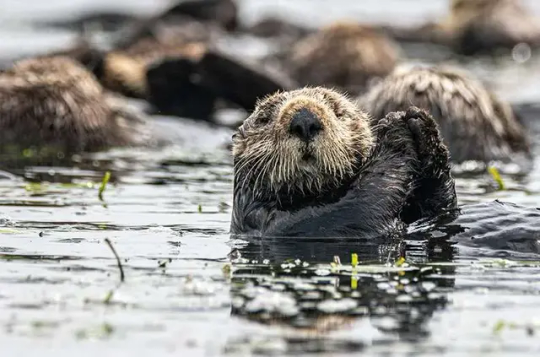
Adult otters need to eat around 25% of their body weight every day to endure the cold Pacific Ocean waters, the equivalent of 20 to 25 pounds. And crabs are one of their favorite meals. After three years, crab densities were 68% higher in fenced areas beyond the reach of otters. The number of crab burrows was also higher. At the same time, marsh grasses inside the fences fared worse, with 48% less mass of leaves and stems and 15% less root mass, a critical feature for capturing sediment that could otherwise wash away, the scientists reported in late January in Nature.
The results point to the crabs as a culprit in the decline of the marshes, as they excavate their holes and feed on the plant roots. It also shows the returning otters’ potential as a marsh savior, even in the face of rising sea levels and continued pollution. In tidal creeks with high numbers of otters, creek erosion was just 5 centimeters per year, 69% lower than in creeks with fewer otters and a far cry from earlier erosion of as much as 30 centimeters per year.
“The return of the sea otters didn’t reverse the losses, but it did slow them to a point that these systems could restabilize despite all the other pressures they are subject to,” said Brent Hughes, a biology professor at Sonoma State University and former postdoctoral researcher in Silliman’s Duke lab.
The findings raise the question of whether other coastal ecosystems might benefit from a return of top predators. The scientists note that a number of these places were once filled with such toothy creatures as bears, crocodiles, sharks, wolves, lions and dolphins. Sea otters are still largely absent along much of the West Coast.
As people wrestle to hold back the seas and revive their ailing coasts, a predator revival could offer relatively cheap and effective assistance. “It would cost millions of dollars for humans to rebuild these creek banks and restore these marshes,” Silliman said of Elk Slough. “The sea otters are stabilizing them for free in exchange for an all-you-can-eat crab feast.”"
-via Anthropocene Magazine, February 7, 2024
#otters#sea otters#conservation#erosion#coastal erosion#coastline#marshes#saltwater#marine science#marine biology#marine animals#sea creatures#ocean#sustainability#soil erosion#erosion control#crab#good news#hope
3K notes
·
View notes
Text

Fun fact: vegetation and plant life is only able to grow on cliff faces that have not been eroded for some time which means this lovely landscape, despite the events of the entire world, remains in peace
#science facts#geography#cliffs#goblincore#naturecore#nature#crowcore#dirtcore#nature aesthetic#forestcore#forest aesthetic#cryptidcore#mushroom aesthetic#woodlandcore#forest#coastal#coast#hillside of trees#green aesthetic#nature lover#nature photo#nature photography#natural
24 notes
·
View notes
Text

🌫️ Sept. 27, 2024 🌫️
Today I:
Had yet another interview
Worked on TEFL methodology course
Practiced spanish
Edited my friend’s story
I love editing for friends SO much. It’s so wonderful to be able to comb through their stories and learn how each author, each friend, works and thinks and creatively approaches situations. I love being able to talk to the authors, too! I get to share my earnest reactions to scenes, make silly comments in the margins, and text them over dramatic or surprising moments. How cool is that?? I get to explore entire worlds made by people I love, and then I get to talk about the experience of exploring it with them?? WOW!
📷: Wilson Creek Beach, California, USA
🎧: Legendary from Epic the Musical by Jorge Rivera-Herrans, Miguel Veloso, Ayron Alexander, Cast of EPIC: The Musical
📖: Funny Story by Emily Henry, 50 Beasts to Break Your Heart by
#studyspo#trying my best#books#100 days of productivity#student#bookblr#book recs#studystudystudy#study space#studying#gradblr#studyspiration#study inspiration#study inspo#100 days challenge#100 days of positivity#100 days of self discipline#100 days of mental healthcare#100 days of studying#light academia#dark academia#romantic academia#coastal academia#academia#academia aesthetic#environmental science#environmental activism#environmental#fall#fall aesthetic
11 notes
·
View notes
Text

𝓽𝔂𝓹𝓮𝓼𝓱𝓲
tiktok: @/girltherqpy
#romcom#spotify#comics#museums#musicians#science#television#moodboard#aesthetic#aesthetic moodboard#blogging#blog#girlcore#girlblogging#pinterest board#this is a girlblog#girlblog aesthetic#live laugh girlblog#just a girlblog#my girlblog#girl blogger#yolo#pinkcore#beach babe#coastal granddaughter#island gyal#island girl#fyp#fypシ#tumblr fyp
9 notes
·
View notes
Text

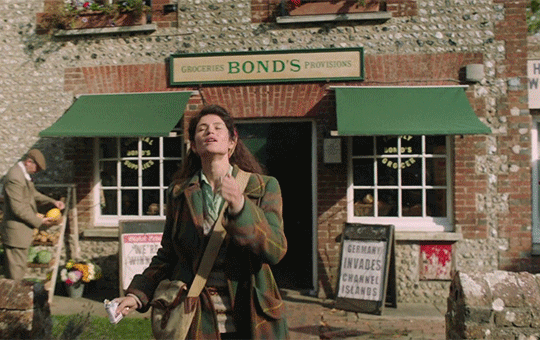





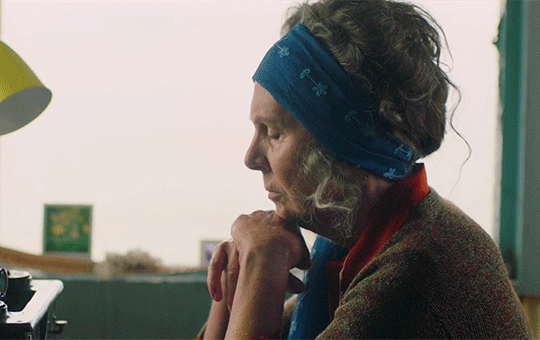
Not Every Film I Watch In 2024
15. Summerland (2020) -- a rewatch
#summerland#summerland (2020)#2024filmgifs#my gifs#i love everything about this film#the characters#the coastal country setting#the wartime homefront story#the queerness#the putting people of colour back into the picture#the science and magic#the grief and coping#the academia and folklore#the wild greenery and oceanscape#and what a cast#Gemma and Gugu being too beautiful for words#Penelope being boho and irascible#Gemma also being irascible and adorable#even Amanda Root in two scenes#and Tom Courtenay being a darling#directed and written by a woman#it's like this movie was made for me
33 notes
·
View notes
Text






~ Coastal Moodboard #2 ~
Yesterday I met a good friend of mine on the beach 💙 She had to leave after a little more than hour, and I spent the rest of the day there. I visited 3 beach accesses in total, from South to North. I saw and enjoyed some beautiful birds and water, but not as many seashells as I was hoping. I collected a few lovely common Ark shells, but nothing that really stood out. Because it was a Saturday and there were more people than usual, and because the waves and riptides were particularly strong
1) Mexican Olive tree trimmings from the tree in my garden
2) one of my favorite thrift finds ever!!! I found this absolutely beautiful scallop on a cheaply made necklace for a very low price! I removed it from the necklace and the scallop is on my altar now 🩷 I plan to reuse the wooden beads that were on the necklace for future jewelry pieces
3) Black Skimmer. I haven't seen this species in a long time! But she was so fascinating to watch! You can see in the photo that this bird glides along the water's edge with their mouth open, collecting small fish, crustaceans, and mollusks! She did this back and forth a few times, then went Northward, away from me
4) A pelican in flight! I saw several groups and pairs looking for and hunting fish. Last week at the beach when I did some spiritual work, I saw a group of 10 pelicans!!
5) Sanderling. A species of sandpiper! They're so cute!! 🩷
6) my favorite photo I've taken of pelicans so far!
#coastal#gulf of mexico#south texas#beach#ocean#shells#seabirds#birds#pelicans#sirencore#mermaidcore#oceancore#spirituality#witchblr#witchcraft#texas#herbalist#environmental science#environmentalism#ecology
10 notes
·
View notes
Text



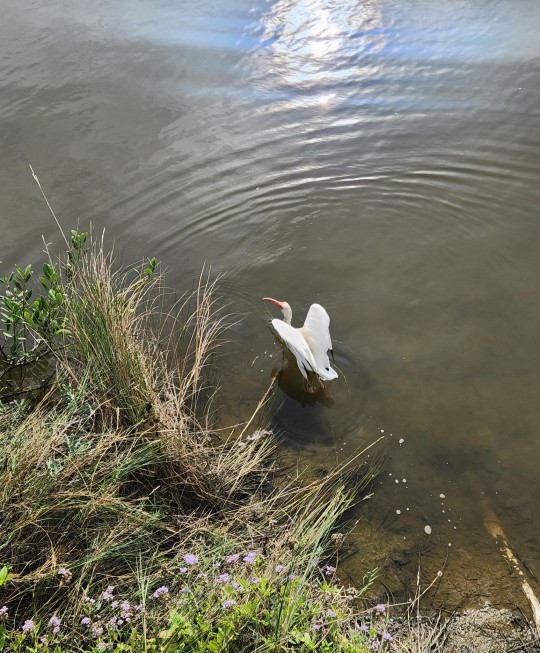

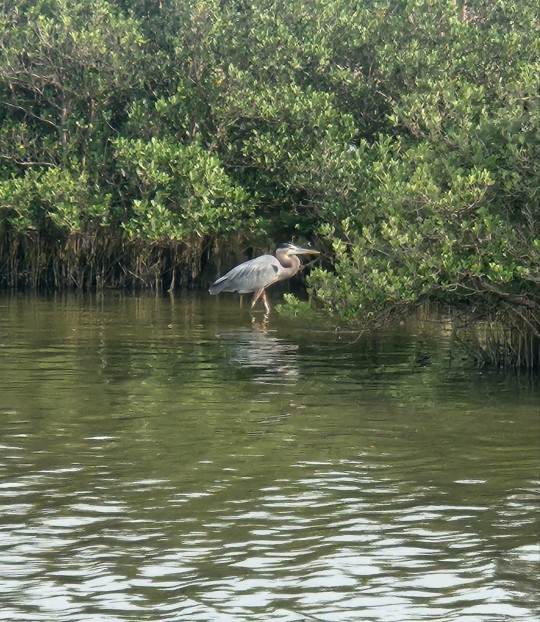

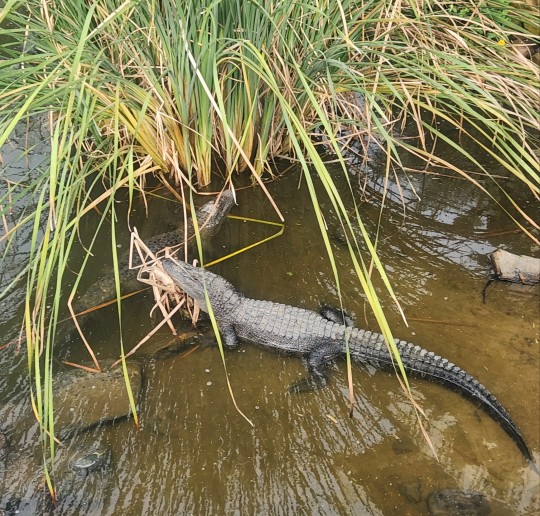
A couple days ago I went to a local nature center. I'll be making another post about some specific plant life, but this post is about the overall environment and some of the wild birds and sanctuaried alligators here. This very beautiful and unique place consists of about 50 acres of wetlands along the bay! It's possible that my Coahuiltecan ancestors migrated to this area depending on food availability throughout the seasons, for plant medicine, and for tool and art crafting materials like wetland grasses and reeds, bones, feathers, shells, and seeds
Pic 1 ~ An overall look at a section of the area, including the bay
2 ~ A wide expanse of Black Mangroves, an extremely vital tree to the ecosystem, and a very spiritual as well as medicinal botanical
3 ~ I'm not sure what this colorful dude's name is but I also see them often in my city! If someone could help me ID him, I'd appreciate it! <3
4 ~ White Ibis, preparing to fly off
5 ~ Big Padre!! A rescued 12' 7" gator, and his lovely wife, Lady Laguna!! I love them, relationship goals fr
6 ~ Some kind of blue Heron, though I'm unsure of the exact species. If anyone knows, I'd appreciate if you could help me ID him!
7 ~ Creepy front view of a Great Blue Heron staring at me
8 ~ A gator using a cattail stump as a pillow! 😭 Too cute not to share
#wetlands#swamp witch#ocean witch#spirituality#depop#environmental science#environmentalism#ecosystem#coastal birds#coastal ecosystem#bay area#south texas#south padre island#sea witchcraft#sea witch#bruja#eclectic witchcraft#ecletic witch#etsy#green witch#green witchcraft#latine#indigenous#heron#great blue heron#white ibis#alligator#black mangrove#sacred land#ancestor work
23 notes
·
View notes
Text
#good news#environmentalism#science#nature#environment#conservation#california#redwood trees#wildfires#fire#coastal redwood
20 notes
·
View notes
Text
youtube
#waves#seascape#seaside#cliffs#sea#west coast#wizards of the coast#east coast#coastal#coast#boom bap#rapper#50 cent#lil wayne#hip hop#rap#hiphop#race car#pc games#humor#funny#rally car#ps4#gaming#science#youtube#business#jams#song of the day#music video
5 notes
·
View notes
Text

Learn About Nurseries of the Marine World in the La Jolla Peninsula & Torrey Pines State Reserve! Bird Life, Aquatic Marine Species, Baby animals, Ospreys, Whales, Dolphins, and the beautiful turquoise teal blue Pacific Ocean: Live Now On YouTube!
youtube
#youtube#southern california#california#beach#travel#la jolla#san diego#north county san diego#ocean#socal#Marine LIfe#Marine Biology#Ecology#Ecosystem#Wildlife#Osprey#Ospreys#Osprey Nest#Nature#Coastal Wildlife#Aquatic Wildlife#Nature Study#Earth Science
6 notes
·
View notes
Text
World Dugong Day
Every year, on the 28th of May, it is celebrated the World Dugong Day! 🧜
Dugong is known as the sea cow (pic attached 🐮 - x). Why sea cow, you ask? These animals can be found in coastal environments feeding exclusively and extensively on seagrasses. The largest remaining population of Dugongs can be found in Australia (i), while the closest to the United Kingdom can be observed in the shallow waters of The Arabian Gulf (ii) 🌊
Why are dugongs important? 🧐
According to the Dugong & Seagrass Conservation Project (iii), dugongs contribute to maintaining balanced marine coastal environments, while also representing good indicators for local ecosystem health. Their presence is of course linked with seagrasses, which not only represents these herbivore mammals’ only source of food: seagrass sits at bottom of food chain in coastal environments (iv). Moreover, it provides important ecosystem services such as fish products, reduced erosion and flood protection (v). In other words, dugong presence is the manifestation of healthy ecosystem. Terrible news is: they are classified as vulnerable species (vi) 😰
Why are they declining? And how is climate change impacting their population? 😭
Dugongs are sensitive creatures not exempt from anthropogenic (modern age) disturbance. They have been largely hunted by humans for its meat, fat and oils, which caused significant population reduction (vi). Also, seagrass species are under extreme pressure due water quality variations largely driven by climate change (vii) and further human activity (viii). In addition, their slow reproduction rate and long life span (around 70 years) make them less resilient from not-environmentally friendly fishing practices (ix) 🎣
What can be done to support them? 💪
The Australian Great Barrier Reef and Marine Park Authority (i) provides the following recommendations:
1. Protect coastal habitats - Do not damage seagrass by dragging boats on underwater meadows and act against pollution, eutrophication and herbicide use deriving from land-based activities 🚜
2. Avoid use of mesh nets - Dugongs can get trapped in fishing nets 🥅
3. Boat responsibly - Dugongs are hard too spot while sitting on high speeding boats. Reduce speed while crossing shallow waters and seagrass meadows. If you spot one, it is likely it will not the only one in the area 🚢
4. Report - Just like for other sirenians, as well as cetaceans, it is essential to report injured/dead dugongs to local authorities ☎️
5. Donate - Dugong & Seagrass Conservation Project covers the conservation of dugongs and their associated seagrass ecosystems in eight countries in the Indo-Pacific region: Indonesia, Madagascar, Malaysia, Mozambique, Solomon Islands, Sri Lanka, Timor-Leste and Vanuatu. See more information here: https://www.dugongconservation.org/ 🙏
References:
i. https://www2.gbrmpa.gov.au/learn/animals/dugong#:~:text=Whether%20in%20protection%20areas%20or,flowing%20into%20creeks%20and%20rivers
ii. https://www.seaworldabudhabi.com/en/stories/meet-the-dugongs#:~:text=In%20the%20UAE%2C%20dugongs%20are,Marine%20Biosphere%20Reserve%20(MMBR)
iii. https://www.dugongconservation.org/about/about-dugongs-seagrass/
iv: https://education.nationalgeographic.org/resource/marine-food-chain/7th-grade/
v: https://www.ncbi.nlm.nih.gov/pmc/articles/PMC5061329/#:~:text=Seagrass%20ecosystems%20play%20a%20multi,erosion%20and%20protection%20against%20floods
vi: https://nc.iucnredlist.org/redlist/amazing-species/dugong-dugon/pdfs/original/dugong-dugon.pdf
vii: https://pubs.usgs.gov/publication/70204854#:~:text=A%20primary%20effect%20of%20increased,the%20patterns%20of%20sexual%20reproduction
viii: https://link.springer.com/chapter/10.1007/978-1-4020-2983-7_24#citeas
ix: https://www.dcceew.gov.au/sites/default/files/env/pages/0fcb6106-b4e3-4f9f-8d06-f6f94bea196b/files/north-report-card-dugong.pdf
x (picture): https://theconversation.com/dugongs-looking-to-the-gentle-sea-creatures-past-may-guard-its-future-122902
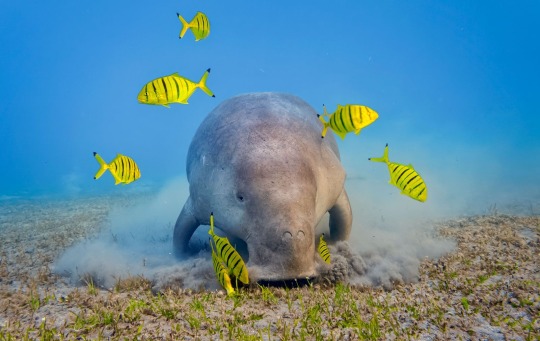
#dugongs#dugong#world dugong day#climate change#nature#sustainability#climate crisis#ecosystem#coastal#environment#environmental science#environmentalism#conservation#anthropocene#habitat#animals#sirens#sirenians
3 notes
·
View notes
Text
#biodiversity#california#candice gaukel andrews#charles darwin#climate change#el nino#coastal habitats#endangered species#envrionment#global warming#kelp#manatee#natural habitat adventures#nathab#nature#oceans#pacific coast#pacific northwest#patagonia#science#science and environment#scientific research#sea otter#seaweed#south america#wild#wildlife#world wildlife fund#wwf
2 notes
·
View notes
Text

Horseshoe crab painting, only one piece of a much larger project!
#art#sciart#animal art#biology#science#artists on tumblr#digital art#painting#digital#crab#horseshoe crab#shore#jersey shore#coastal
5 notes
·
View notes
Text
entertaining the thought of writing pacific rim fanfic
#there are many benefits to going to a school with a spectacular coastal science program#one of them being access to the materials and people necessary to plot this fucking insane marine bio au ive been brainstorming up#sorry if u came here for justified. summer is over. the rainy season means im posting about pacific rim my one true love pacific rim#jack.txt
4 notes
·
View notes